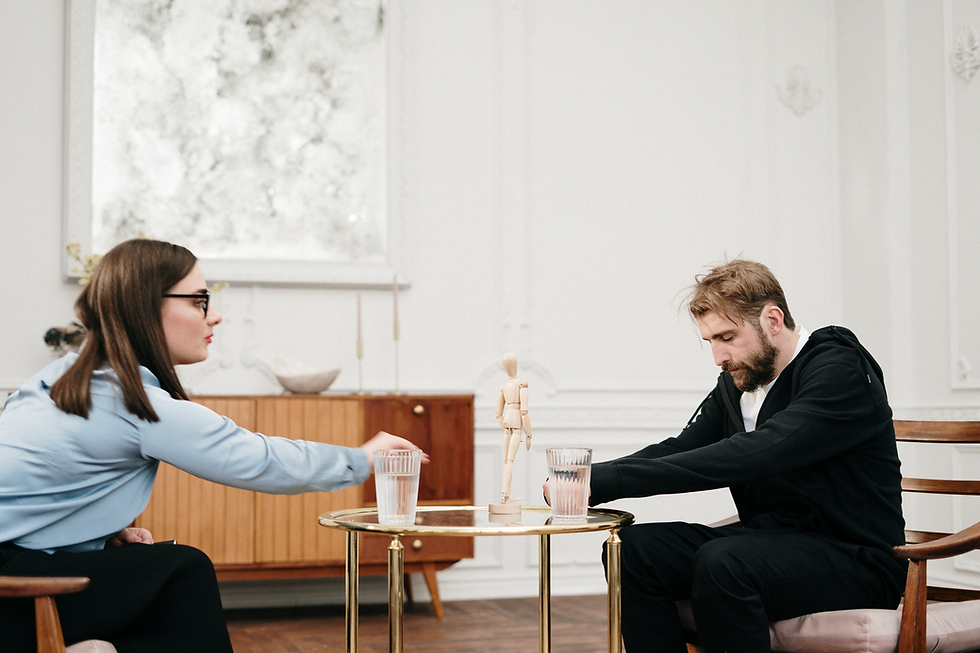The Lengths We Go for Physical Validation.
- sademajek14
- Oct 7, 2021
- 3 min read

There are obviously a ton of reasons why we buy clothes. Whether it be for a formal event, a date, a night out or just casual day wear - we have items in our wardrobes for various occasions and if we don't we go and purchase them for said occasions. However, when do we spend our money on our self-expression and comfort? When there isn't a specific dress requirement and we dress for 'ourselves' is it really for us or is it for other people’s validation?
The most affected demographic:
Teenagers. Probably not the most surprising statement, but with the extremely wide access of celebrities and influencers on TikTok, Instagram and Youtube; self-expression is practically abandoned. Peer pressure and the fear of exclusion take the forefront. There is a vast difference between gaining social independence as an adult compared to a teen. Teens are in such a small environment like a school where friends are made initially in the first months of their first year, and everyone has access to the internet so everyone is exposed to the same beauty standards. Whether it be new trainers that an athlete bought or a coat that was sent as P.R to influencers with millions of followers, the impact of the media is everywhere. In the UK we have the fortunate benefit of uniforms being mandatory until sixteen, however, there are social situations outside of school that can transfer to the inside. All these teens have social media platforms that their friends and peers have access to as well. 'So there is no escape. Acceptance and fear of rejection come in many forms, from dressing in a certain way to prevent bullying or mocking, going shopping with friends and asking for advice so they are up to date with the latest coats and expensive shoes'. 'Imitation' is also included by seeing the majority wearing something and needing to copy to again fit in. In an adult setting, the circumstances tend to be different, because the workplace isn't so superficial; clothes don't really become a significant factor unless you are entering a career that requires it to be so.
Comfort:
When I discuss the topic of comfort I am referring to several things. Validation doesn't just come from friends, colleagues and peers, there is also a romantic or sexualised element as well. As a woman who has experienced the pressure of being sexually confident and accepted, I am referring to the male gaze. The comfort we seem to sacrifice in this circumstance is due to dressing ourselves and 'exposing ourselves(this isn't uncomfortable to everyone)' to appear sexually confident and to feel wanted and desired - I am also guilty of this. Not receiving such attention unfortunately can directly cause body image issues, and feeling insecure about not being perceived as beautiful or as desired like others. So in turn it is a lose, lose situation.
Money:
Another aspect of discomfort I wanted to address was financial discomfort, something I can personally relate to. It's easier to ignore such issues as an adult with sayings like 'It's not the cost of what you wear, it's how you wear it.' But being a teenager consistently around social naivety there can be mental health consequences just based on what you can afford. Wearing trainers that have been out of style for years becomes something to laugh at. I have experienced this personally wearing flared jeans and people pointing it on the street. I didn't wear them specifically because I liked them I wore them because that is what I had and what I could afford to have. I am not completely disregarding adults in this article either. As financial discomfort and fashion come to play in this demographic as well. Especially when you are in a field where appearance matters as I mentioned earlier. I have first-hand witnessed people sacrifice certain elements of their lives and their whole month's salary on clothing items just for the name. Not for how it looks, just to keep up appearances.
Self-worth:
I know there are many elements where some would disagree with me because they believe they have never fallen into these categories or they are doing it subconsciously. In regards to mental health, the question is if you are happy because if you are is it really someone's place to advise you to live differently. You could tell a teen to focus on themselves and not to worry about everyone else but in doing so they could end up excluded and alone. So therefore should they give in to social pressures to be happy? I feel it's a matter of measuring your own self-worth and studying your surroundings. Do the people around you really cherish you if you worry about how they physically perceive you? Is your happiness not even skin-deep?
Sade Tonga Majek



Comments